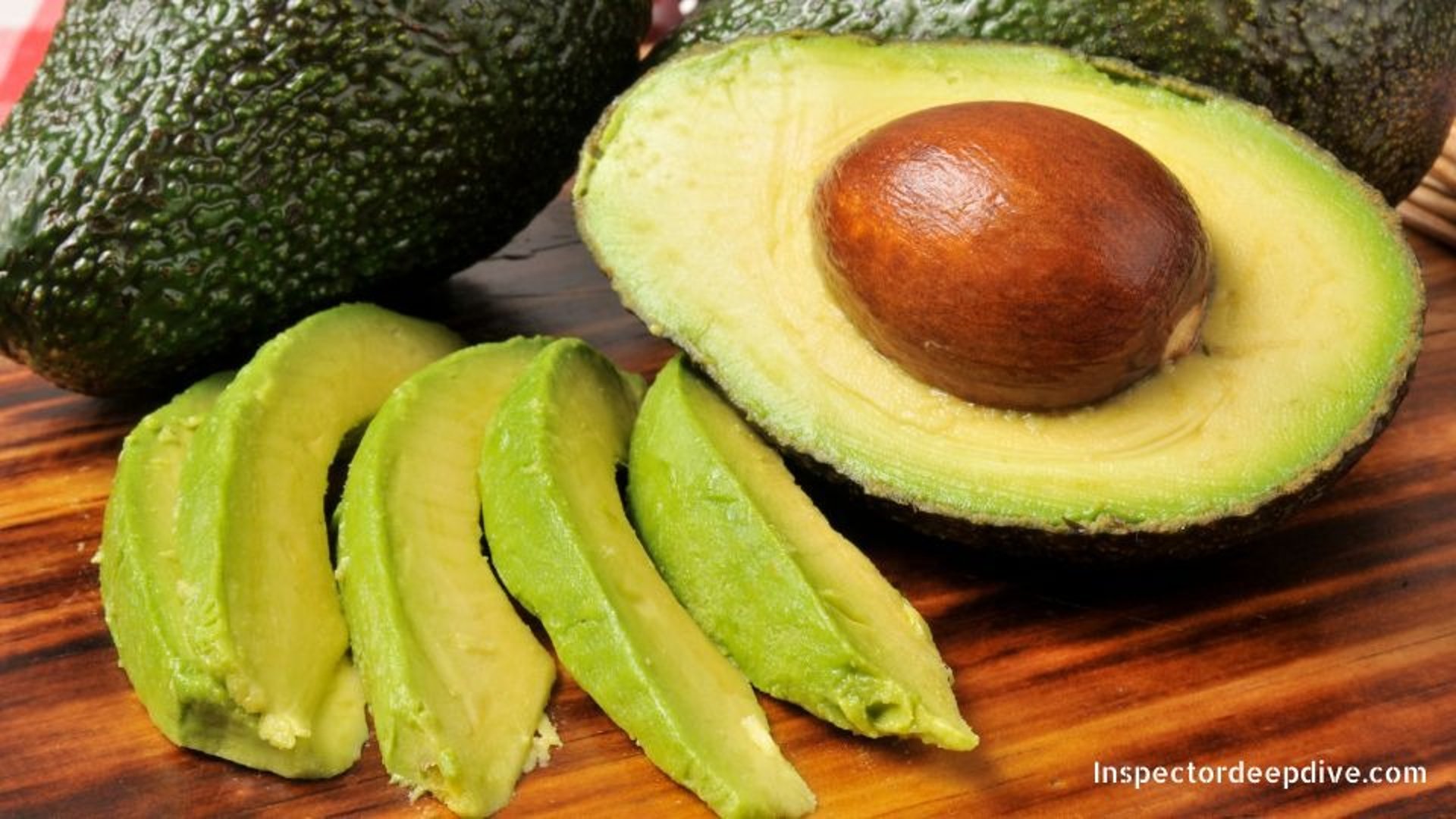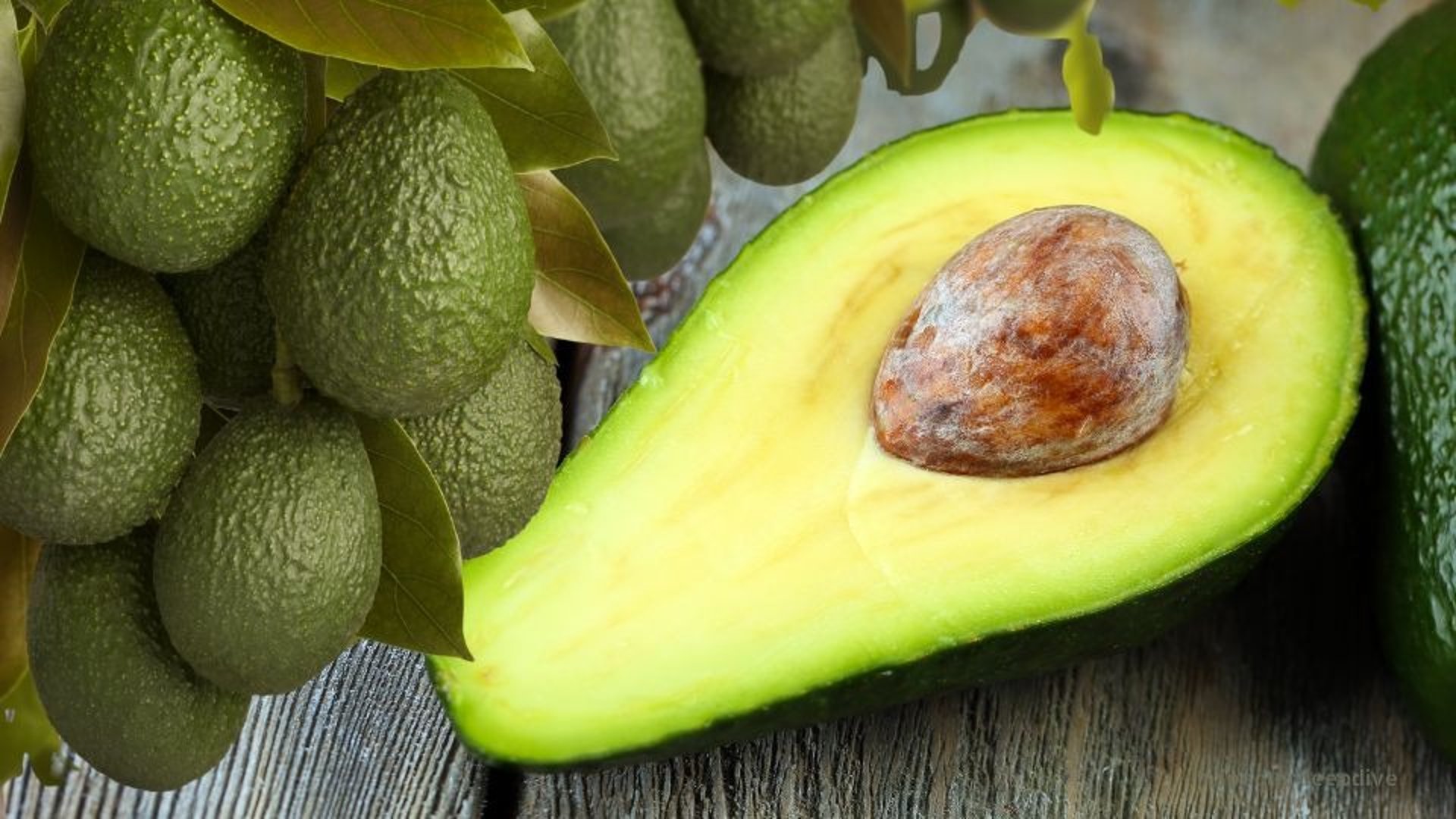
Avocado Health Benefits: Heart Health, Weight Loss, and Nutrient

Avocado Health Benefits: Heart Health, Weight Loss, and Nutrient
Scientific Name: Persea americana
Family: Lauraceae
What Is Avocado?
Avocado is a nutrient-rich fruit prized for its creamy texture and rich, buttery flavor. Unlike most fruits that are high in carbohydrates, avocados are unique because they are primarily composed of heart-healthy fats. Versatile in both savory and sweet dishes, avocados are celebrated for their benefits to cardiovascular health, metabolism, and enhancing the absorption of other nutrients.
Origin and Cultivation
Native to south-central Mexico, avocados have been cultivated for thousands of years. Today, they thrive in tropical and subtropical climates worldwide. Leading producers include Mexico, Peru, Chile, Spain, and the United States especially California, which is renowned for its high-quality avocados.
Popular Varieties of Avocado
Hass: The most popular variety, featuring dark, pebbly skin and rich, buttery flesh.
Fuerte: Smooth green skin with a milder, less creamy flavor.
Bacon: Smaller fruit with thin skin and a lighter taste.
Gwen: Larger with a creamier texture and often higher fat content.
Pinkerton: Elongated shape, smooth skin, and a nutty flavor.
Seasonality & Availability
Avocados are available year-round thanks to global production. In California, Hass avocados peak from spring through early fall, while Mexico and Peru supply many off-season months, ensuring consistent availability worldwide.
Health Benefits of Avocado
Avocados are rich in monounsaturated fats, especially oleic acid, which supports heart health by lowering LDL (bad) cholesterol and raising HDL (good) cholesterol. Their high fiber content promotes digestive health and helps you feel full longer. Antioxidants like lutein and zeaxanthin protect eye health, while folate supports fetal development during pregnancy. The healthy fats in avocados also enhance the absorption of fat-soluble vitamins (A, D, E, and K) from other foods.
Key Bioactive Compounds
Avocados contain anti-inflammatory monounsaturated fats and antioxidants. They also have phytosterols, plant compounds that help regulate cholesterol and reduce digestive inflammation.
Nutritional Breakdown (per 100g raw)
Vitamins:
Vitamin C: 10 mg boosts immunity and skin health
Thiamin (B1): 0.06 mg supports nerve function
Riboflavin (B2): 0.13 mg aids energy production
Niacin (B3): 1.7 mg supports metabolism
Pantothenic acid (B5): 1.4 mg hormone production
Vitamin B6: 0.25 mg brain function
Folate (B9): 81 µg cell division and pregnancy health
Vitamin E: 2.1 mg antioxidant protection
Vitamin K: 21 µg blood clotting and bone health
Minerals:
Calcium: 12 mg bone support
Iron: 0.55 mg oxygen transport
Magnesium: 29 mg energy and muscle function
Phosphorus: 52 mg bone health and metabolism
Potassium: 485 mg fluid balance and heart health
Sodium: 7 mg nerve and fluid balance
Zinc: 0.64 mg immune support
Macronutrients:
Water: 73 g
Energy: 160 kcal
Protein: 2 g
Total fat: 15 g (mostly monounsaturated)
Carbohydrates: 8.5 g
Fiber: 6.7 g
Sugars: 0.7 g
Potential Risks
Because of its high fat content, overconsumption of avocado can lead to excess calorie intake. Rare allergic reactions, including itching and swelling, may occur, especially in individuals with latex allergies due to cross-reactivity. Those on strict low-fat diets or monitoring calories should watch portion sizes.
Medication & Supplement Interactions
Avocado’s high vitamin K content can interfere with blood-thinning medications like warfarin. It’s important to maintain consistent intake and consult your healthcare provider. Additionally, the healthy fats in avocado can improve the absorption of fat-soluble vitamin supplements.
What Avocado Does for the Body
Avocado helps improve cholesterol by lowering bad LDL levels and boosting good HDL cholesterol, while also reducing inflammation. Its fiber and healthy fats keep you feeling full and support healthy gut bacteria. Antioxidants like lutein and zeaxanthin protect your eyes. Potassium in avocado helps control blood pressure and supports muscle function. The healthy fats also help your body absorb fat-soluble vitamins, and folate aids in DNA production and supports fetal growth.
Who Should Be Cautious
Individuals with latex allergies (due to possible cross-reactivity)
People on anticoagulant therapy should monitor vitamin K intake
Those with advanced kidney disease should consult a clinician about high-potassium foods
Surprising Facts About Avocado
Avocados are low in sugar compared to most fruits. Their nutritional profile is more similar to nuts because of their high healthy fat content. Adding avocado to vegetable dishes can significantly increase the absorption of fat-soluble nutrients.
Environmental Impact
Avocado farming has raised concerns about water usage and deforestation in some regions. Sustainable practices such as rainwater harvesting, organic farming, and buying locally grown avocados can help reduce environmental impact.
Best Time to Eat Avocado
Avocados are versatile and can be enjoyed any time of day whether at breakfast for sustained energy, lunch or dinner to boost nutrient absorption, or as a satisfying snack to curb cravings.
Best Ways to Use Avocado
Mashed for guacamole or spread on toast
Sliced in salads and sandwiches
Blended into smoothies
Used as a butter or oil substitute in baking
Stuffed avocado halves with tuna, quinoa, or roasted vegetables
Label Reading Tips (For Packaged Avocado Products)
Check ingredient lists carefully and avoid added sugars, preservatives, or artificial flavors. For avocado oil, choose cold-pressed or extra-virgin varieties and verify smoke point claims if you plan to cook with it.
Chef & Culinary Tips
Choose avocados by gently pressing the skin—if it yields slightly, it’s ripe. Speed ripening by placing avocados in a paper bag with an apple or banana. Prevent browning by brushing cut surfaces with lemon or lime juice or storing with the pit intact.
Storage & Shelf Life
Unripe avocados: Store at room temperature until softened
Ripe avocados: Refrigerate to extend shelf life by 2–3 days
Cut avocados: Wrap tightly or store in airtight containers; use lemon or lime juice to reduce browning
Recipes & Meal Ideas
Classic guacamole with lime, salt, tomato, onion, and cilantro
Avocado toast topped with a poached egg and red pepper flakes
Avocado smoothie with spinach, banana, and almond milk
Stuffed avocados with tuna, quinoa, or roasted vegetables
The Science Behind Avocado
Monounsaturated fats like oleic acid improve cholesterol levels and reduce inflammation. Lutein and zeaxanthin concentrate in the retina, lowering the risk of age-related macular degeneration. Observational studies link regular avocado consumption with better diet quality and reduced risk of metabolic syndrome.
FAQs
Are avocados fattening?
No. Avocados contain healthy fats that, when eaten in moderation, support weight management.
Can I eat avocado every day?
Yes, in moderation. Watch portion sizes to control calorie intake.
Why does my avocado taste bitter?
Bitterness can indicate overripeness or internal damage. Check for brown spots or mushy texture.
Is avocado oil healthier than olive oil?
Both are rich in monounsaturated fats. Avocado oil has a higher smoke point, making it better for high-heat cooking.
info@inspectordeepdive.com
© 2025 food.InspectorDeepDive.com. All rights reserved. Content may not be copied or republished without permission.
This article is for informational purposes only. InspectorDeepDive.com does not provide medical advice. Always consult a licensed healthcare provider before making dietary or health decisions.
